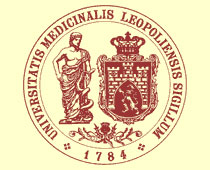Journal of Gastroenterology and Hepatology (2006) 21 (Suppl. 2).
Background
The HCV is widely distributed all over the world. Chronic infection occurs in 85% to 90% of persons exposed to the virus and may progress to chronic active hepatitis and cirrhosis. Chronic hepatitis C virus infection is associated with many extrahepatic manifestations in joints, muscles, neural, skin and other tissues. The prevalence of rheumatologic symptoms in patients with mixed cryoglobulinaemia associated to chronic hepatitis C virus (HCV) infection was investigated in our research.
Methods
One hundred thirty patients (83 female and 47 male, mean age 51.5 years) with chronic HCV infection and cryoglobulinaemia were recruited. The presence, concentration, and type of cryoglobulins were tested by immunofixation. Rheumatoid factor (RF) and antinuclear antibody (ANA) were also measured. Rheumatological related symptoms were investigated by anamnesis and clinical evaluation. HCV genotype was determined by polymerase chain reaction (PCR) with genotype specific primer.
Results and conclusion
Type II cryoglobulinaemia was identified in 42 cases and it was of type III in 15. HCV-RNA genotype was determined in 130 patients: 109 (83,8%) were infected by genotype 1b, 14 (10,7 %) by genotype 3a and 7 patients (5,4 %) was the mixed genotype. RF and ANA were, respectively, present in 110 (84.2 %) and 62 (47,4 %) patients at low titre (RF < 50 UI/ml, ANA = 1:80). Of the 130 patients, 57 (43.8%) complained for rheumatological symptoms. The arthritis was usually symmetric and involved the small joints of the hand, wrist, and feet, but may involve larger joints, such as the elbows, ankles, and knees. The mean cryocrit value in these patients was 2,6 %, while in patients with HCV infection, liver disease, and cryoglobulinaemia without rheumatological symptoms the cryocrit value was lower than 0.5% in 50% of cases. It is concluded that patients with chronic HCV infection reported a wide variety of rheumatological manifestations, impairing their quality of life, with discrete frequency. These results suggest that HCV infection should be considered in the differential diagnosis of rheumatological symptoms of unknown origin.


